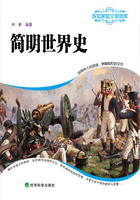After giving a day to sad recollections,the hardy spirit which had carried him through so many dangers,manned the Sergeant's bosom against this cruel disappointment."He would go,"he said,"to Canada to his kinsfolk,where they had named a Transatlantic valley after the glen of their fathers.Janet,"he said,"should kilt her coats like a leaguer lady;d--n the distance!it was a flea's leap to the voyages and marches he had made on a slighter occasion."
With this purpose he left the Highlands,and came with his sister as far as Gandercleugh,on his way to Glasgow,to take a passage to Canada.But winter was now set in,and as he thought it advisable to wait for a spring passage,when the St.Lawrence should be open,he settled among us for the few months of his stay in Britain.As we said before,the respectable old man met with deference and attention from all ranks of society;and when spring returned,he was so satisfied with his quarters,that he did not renew the purpose of his voyage.Janet was afraid of the sea,and he himself felt the infirmities of age and hard service more than he had at first expected.And,as he confessed to the clergyman,and my worthy principal,Mr.Cleishbotham,"it was better staying with kend friends,than going farther,and faring worse."
He therefore established himself and his domicile at Gandercleugh,to the great satisfaction,as we have already said,of all its inhabitants,to whom he became,in respect of military intelligence,and able commentaries upon the newspapers,gazettes,and bulletins,a very oracle,explanatory of all martial events,past,present,or to come.
It is true,the Sergeant had his inconsistencies.He was a steady jacobite,his father and his four uncles having been out in the forty-five;but he was a no less steady adherent of King George,in whose service he had made his little fortune,and lost three brothers;so that you were in equal danger to displease him,in terming Prince Charles,the Pretender,or by saying anything derogatory to the dignity of King George.Further,it must not be denied,that when the day of receiving his dividends came round,the Sergeant was apt to tarry longer at the Wallace Arms of an evening,than was consistent with strict temperance,or indeed with his worldly interest;for upon these occasions,his compotators sometimes contrived to flatter his partialities by singing jacobite songs,and drinking confusion to Bonaparte,and the health of the Duke of Wellington,until the Sergeant was not only flattered into paying the whole reckoning,but occasionally induced to lend small sums to his interested companions.After such sprays,as he called them,were over,and his temper once more cool,he seldom failed to thank God,and the Duke of York,who had made it much more difficult for an old soldier to ruin himself by his folly,than had been the case in his younger days.
It was not on such occasions that I made a part of Sergeant More M'Alpin's society.But often,when my leisure would permit,I used to seek him,on what he called his morning and evening parade,on which,when the weather was fair,he appeared as regularly as if summoned by tuck of drum.His morning walk was beneath the elms in the churchyard;"for death,"he said,"had been his next-door neighbour for so many years,that he had no apology for dropping the acquaintance."His evening promenade was on the bleaching-green by the river-side,where he was sometimes to be seen on an open bench,with spectacles on nose,conning over the newspapers to a circle of village politicians,explaining military terms,and aiding the comprehension of his hearers by lines drawn on the ground with the end of his rattan.
On other occasions,he was surrounded by a bevy of school-boys,whom he sometimes drilled to the manual,and sometimes,with less approbation on the part of their parents,instructed in the mystery of artificial fire-works;for in the case of public rejoicings,the Sergeant was pyrotechnist (as the Encyclopedia calls it)to the village of Gandercleugh.
It was in his morning walk that I most frequently met with the veteran.And I can hardly yet look upon the village footpath,overshadowed by the row of lofty elms,without thinking I see his upright form advancing towards me with measured step,and his cane advanced,ready to pay me the military salute--but he is dead,and sleeps with his faithful Janet,under the third of those very trees,counting from the stile at the west corner of the churchyard.
The delight which I had in Sergeant M'Alpin's conversation,related not only to his own adventures,of which he had encountered many in the course of a wandering life,but also to his recollection of numerous Highland traditions,in which his youth had been instructed by his parents,and of which he would in after life have deemed it a kind of heresy to question the authenticity.Many of these belonged to the wars of Montrose,in which some of the Sergeant's ancestry had,it seems,taken a distinguished part.It has happened,that,although these civil commotions reflect the highest honour upon the Highlanders,being indeed the first occasion upon which they showed themselves superior,or even equal to their Low-country neighbours in military encounters,they have been less commemorated among them than any one would have expected,judging from the abundance of traditions which they have preserved upon less interesting subjects.It was,therefore,with great pleasure,that I extracted from my military friend some curious particulars respecting that time;they are mixed with that measure of the wild and wonderful which belongs to the period and the narrator,but which I do not in the least object to the reader's treating with disbelief,providing he will be so good as to give implicit credit to the natural events of the story,which,like all those which I have had the honour to put under his notice,actually rest upon a basis of truth.














